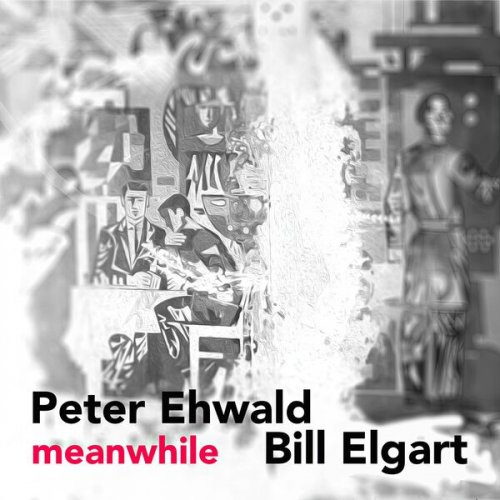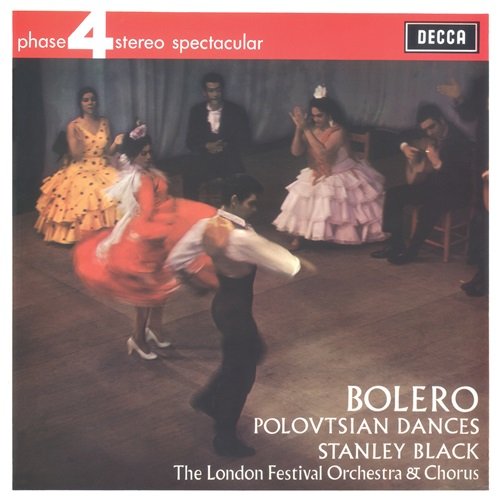Modney, Eric Umble, Sharon Harms, Donald Berman, Karina Kontorovitch, Ryan Townsend Strand - As I Write This: Songs & Solos of Aaron Helgeson (2025) [Hi-Res]
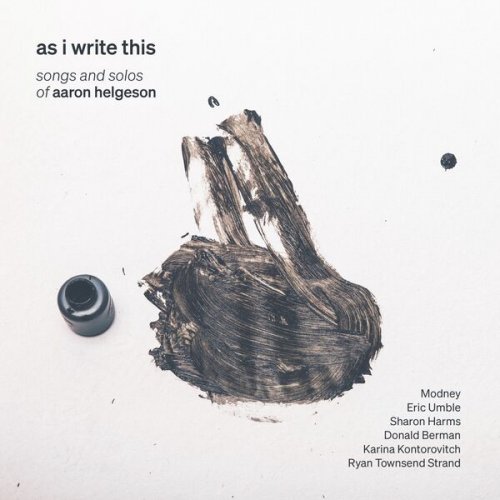
Artist: Modney, Eric Umble, Sharon Harms, Donald Berman, Karina Kontorovitch, Ryan Townsend Strand
Title: As I Write This: Songs & Solos of Aaron Helgeson
Year Of Release: 2025
Label: New Focus Recordings
Genre: Classical
Quality: flac lossless (tracks) / flac 24bits - 48.0kHz +Booklet
Total Time: 00:53:20
Total Size: 205 / 470 mb
WebSite: Album Preview
TracklistTitle: As I Write This: Songs & Solos of Aaron Helgeson
Year Of Release: 2025
Label: New Focus Recordings
Genre: Classical
Quality: flac lossless (tracks) / flac 24bits - 48.0kHz +Booklet
Total Time: 00:53:20
Total Size: 205 / 470 mb
WebSite: Album Preview
01. Once a While in Time: Once...
02. Once a While in Time: ...a while...
03. Once a While in Time: ...in time
04. Hardanger Transcriptions: Sven i Sy’ Garde
05. Through Glimpses of Unknowing
06. Hardanger Transcriptions: Thomasklukkud’n på Filefjell
07. A Place Toward Other Places
08. Hardanger Transcriptions: Den Store Salmen
09. A Long While
Featuring music by Aaron Helgeson that collages the composers own fragmented transcriptions, this portrait album includes songs for tenor combining mentions of time in letters to Jacqueline Kennedy Onassis after JFK's assassination with scraps of Willie Nelson's country ballad Ain't It Funny How Time Slips Away, piano music made from broken shards of preludes by Debussy and Ravel, clarinet translations of sounds from the San Francisco Bay Area, and a soprano soliloquy mixing the 583 words spoken by Hermione in Shakespeare's last play A Winter's Tale, all interspersed with Helgeson's arrangements of traditional Norwegian Hardanger fiddle tunes.
Aaron Helgeson takes a thoughtful approach to the modernist penchant for deconstruction. Pulling musical ideas apart and examining them to assemble something new is not merely an exercise of dispassionate observation in his hands, but instead a practice of engaged inquiry. Whether it be using fragments of public letters in response to a catastrophic event, recontextualized gestures from the piano music of Debussy or from field recordings in the Bay Area, or selected texts from a fraught character in a Shakespeare play, Helgeson sees in these component parts the potential for an illumination of the whole, not just from the standpoint of scientific wonder, but as a key to understanding a deeper essence, or a more beguiling mystery, surrounding his chosen subject. The patiently unfolding works on As I Write This bear this out, eschewing teleology in favor of structures that evolve at their own pace and with their own internal expressive logic.
Helgeson takes an inventive approach to Once a While in Time for tenor and piano, a work broadly about the JFK assassination, but more specifically about encapsulating something of the collective emotional, internal response to the tragic event. Letters written by members of the American public to Jacqueline Onassis Kennedy provide the source text, as Helgeson extracts fragments of the letters that reference time. Musically, he takes a similar deconstructive approach to Willie Nelson’s “Ain’t it Funny How Time Slips Away,” which was on the Billboard charts in a cover version by Billy Joe Royal the week of the assassination. The song was recorded by many pop, country, and R&B artists, including Elvis, Al Green, and Nelson himself. Helgeson weaves a musical tapestry of shards taken from these recordings and words lifted from the public’s letters to create a haunting time capsule of this pivotal event in US history in three brief, poignant movements.
The Norwegian Hardanger fiddle is a four string bowed instrument with five sympathetic resonating strings inside the instrument’s body. Helgeson transcribed performances recorded in 1977 by virtuoso Hardanger fiddler Torleiv Bolstad and in the process discovered an intriguing detail; Bolstad’s feet were stomping in a rhythm that seemed to be disconnected from the fiddle material itself. This inspired Helgeson to organize these transcriptions in such a way as to capture this internal dissonance, notating the meter and the melody in different subdivisions. Intitially part of the solo violin part in what Helgeson calls his anti-cantata, Snow Requiem, the remaining two transcriptions were dedicated to violinist Modney whose stylized performances are shaped by a background playing fiddle repertoire. The second and third are both in alternate tunings, one somber and the other exuberant and joyful, and are interspersed througout the program.
Through Glimpses of Unknowing for solo piano, performed here by Donald Berman, was inspired by an installation by artist Chiharu Shiota titled In Silence, involving a burnt piano and many dense layers of long black thread surrounding a seated audience. Helgeson found his own “layers of thread” in Debussy’s iconic solo piano Preludes, focusing on trills, tremolos, and various sound objects in those pieces and then manipulating them and reassembling them in this work. The result is splashes of pianistic color and impression, resonances built upon each other to form elusive, watery pastels of sound that evolve ever deeper into themselves, with occasional flashes of brilliant luminosity in the higher register.
The solo clarinet work A Place Towards Other Places, written for Richard Hawkins and performed here by Eric Umble, is a portrait of Helgeson’s sonic observations of two contrasting environments, the urban environment of San Francisco and the pristine park lands on the northern peninsula of San Francisco Bay. Helgeson recorded and transcribed sounds in both locations, building the sound vocabulary for the clarinet part, sometimes combining them into hybrid gestures (as with the fragile, alternating multiphonics at the opening of the work, a merging of a fog horn in the city with the song of a mysterious wild animal in Muir Woods). As the work evolves, Helgeson establishes a dialogue between the different kinds of material (oscillating trills, repeated clarion calls, swelled sustains), creating a kind of non-linear structural journey reminiscent of some of Takemitsu’s output.
The final piece on the album, A Long While, draws from Shakespeare’s last stage work, The Winter’s Tale, freely assembling the text from the 583 words spoken by the character Hermione in the course of the play. One of the Bard’s most wrenching character trajectories, Hermione is sentenced to death for an adultery she did not commit, remerging into society after sixteen years of captivity. Fusing his compositional and textual approach, Helgeson established a piece-specific vocabulary of disembodied, repeated musical and text fragments that evoke the emptiness of an indeterminate, interminable period of enforced isolation. The keyboard writing, performed again by Donald Berman, makes extensive use of the brittle, percussive notes in the highest register, often in tandem with the haunting lowest register, as if to avoid the overtly effusive expressive character of the piano’s vast middle. The vocal part, sung by soprano Sharon Harms, is arranged in a series of charged ruminations, lingering on unanswerable questions with truncated phrases whose lyricism is persistently interrupted before it can flower into fully fleshed out melismatic phrases. Instead, structural arrivals are marked with repetition, of a stark arrival on a high note, or the striking registral distance between voices in a detached piano motive, mining minimal expressive energy for maximal expressive output.
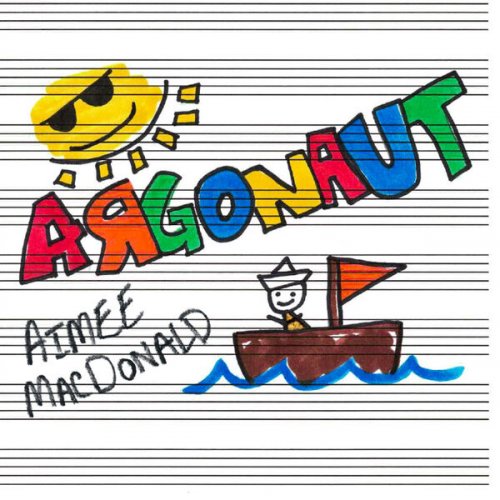
![Bryan Ferry - Bitter-Sweet (2018) [Hi-Res] Bryan Ferry - Bitter-Sweet (2018) [Hi-Res]](https://www.dibpic.com/uploads/posts/2018-11/1543491501_folder.jpg)
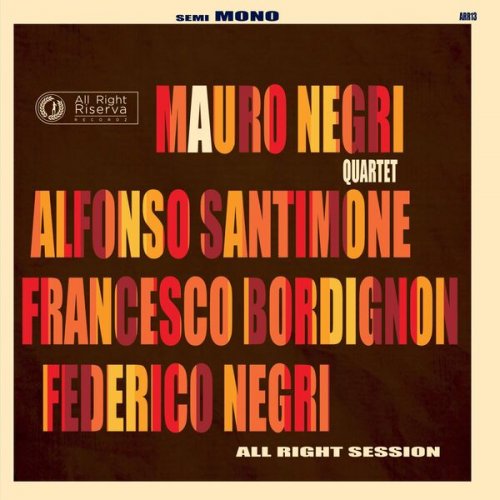
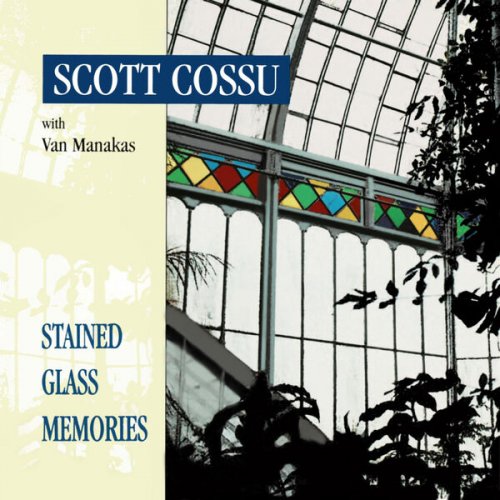
![Tim Kliphuis, Maya Fridman, Marc van Roon - Kosmos (2025) [Hi-Res] Tim Kliphuis, Maya Fridman, Marc van Roon - Kosmos (2025) [Hi-Res]](https://www.dibpic.com/uploads/posts/2025-12/1765893448_folder.jpg)
![Milton Man Gogh - Fully Stretched (2025) [Hi-Res] Milton Man Gogh - Fully Stretched (2025) [Hi-Res]](https://www.dibpic.com/uploads/posts/2025-12/1766080588_cover.jpg)
![Cornelius Claudio Kreusch - Scoop (2025) [Hi-Res] Cornelius Claudio Kreusch - Scoop (2025) [Hi-Res]](https://www.dibpic.com/uploads/posts/2025-12/1765893706_folder.jpg)
